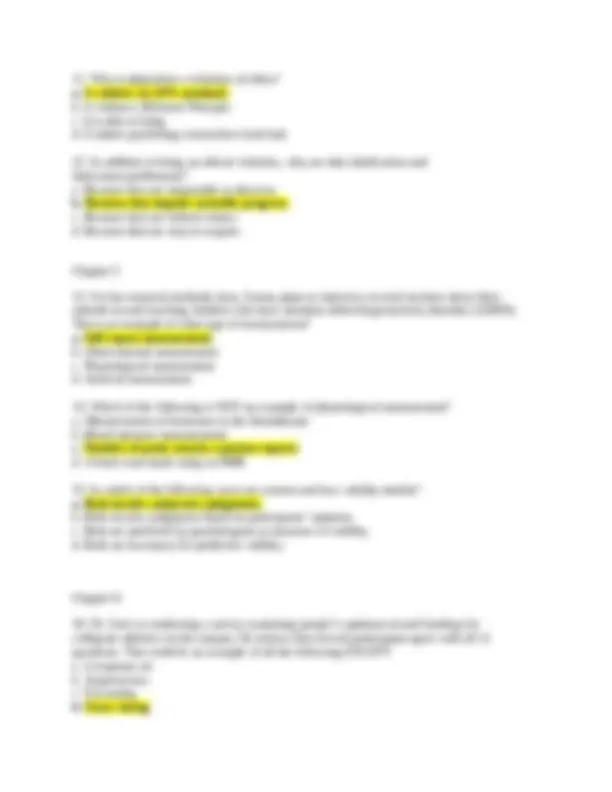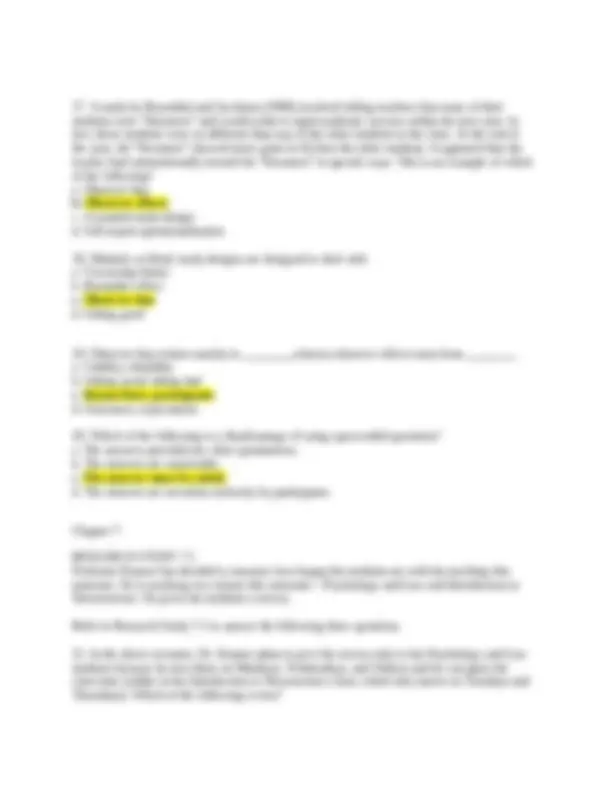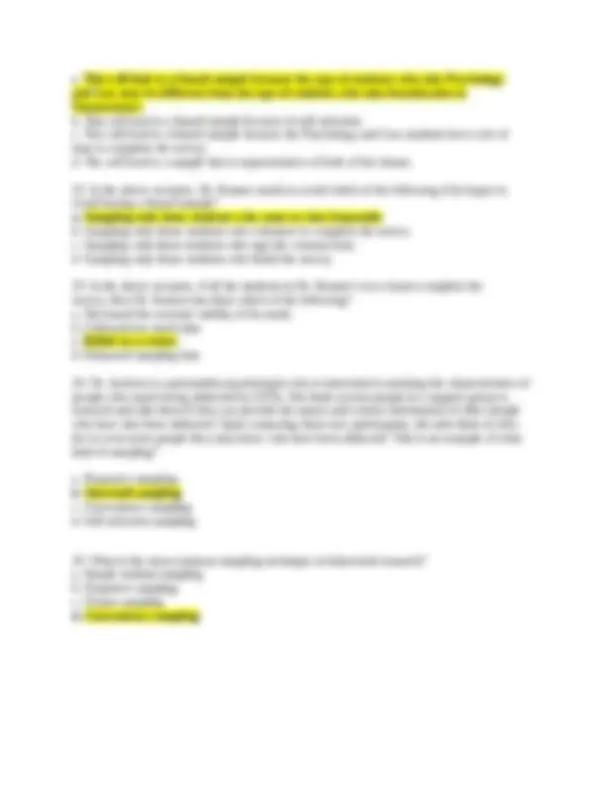Chapter 4:
1. The aim of the Tuskegee Study was to examine which disease?
a. Syphilis
b. Cancer
c. Tuberculosis
d. Smallpox
2. In considering whether research is ethical, which of the following are balanced against
each other?
a. Inconvenience to participants versus benefit to the researcher
b. Time investment of the study versus complexity of the study
c. Importance of the research versus financial cost to conduct the study
d. Risk to participants versus value of the knowledge gained
RESEARCH STUDY 4.1
Dr. Kline is planning on conducting a study next semester. He is curious as to whether sleep
deprivation is associated with poorer cognitive performance. For example, if you sleep poorly
the night before a big exam, will you do worse? Dr. Kline is especially curious about selective
sleep deprivation, where people are kept from entering REM (rapid eye movement) sleep. Using
an electroencephalograph (EEG) to monitor brain waves, he plans to let participants sleep until
they enter REM sleep and then he will wake them. After the participants are awake for one
minute, Dr. Kline plans to let them return to sleep. As they enter REM sleep again, he will wake
them again and follow the same procedure. He plans to do this through the entire eight-hour
sleep session. The following morning, participants will be asked to take a sample SAT test.
Refer to Research Study 4.1 to answer the following seven questions.
3. Imagine that Dr. Kline is a clinical psychologist who volunteers his time at a local prison
counseling several inmates. Because of his connections there, he is considering using
prisoners as his participants. Why is this choice potentially problematic?
a. According to the Belmont Report, prisoners are entitled to special protection.
b. Prisoners do not make good participants since they may not tell the truth.
c. Prisoners are unable to give informed consent.
d. More prisoners may want to participate than Dr. Kline can actually study.
4. To address the Belmont principle of beneficence, Dr. Kline would need to ask which of
the following questions?
a. Are the people in my study going to benefit as much as the people not in my study?
b. What can I do to decrease the potential harm experienced by my participants?
c. Can the participants in my study give full, informed consent?
d. Am I trained sufficiently to conduct this study?
5. Dr. Kline suspects that the people who will most benefit from his study are high school
and college students, who are asked to perform cognitive functions in various states of sleep
deprivation. Given this information, what type of participants should Dr. Kline recruit for his
study?














